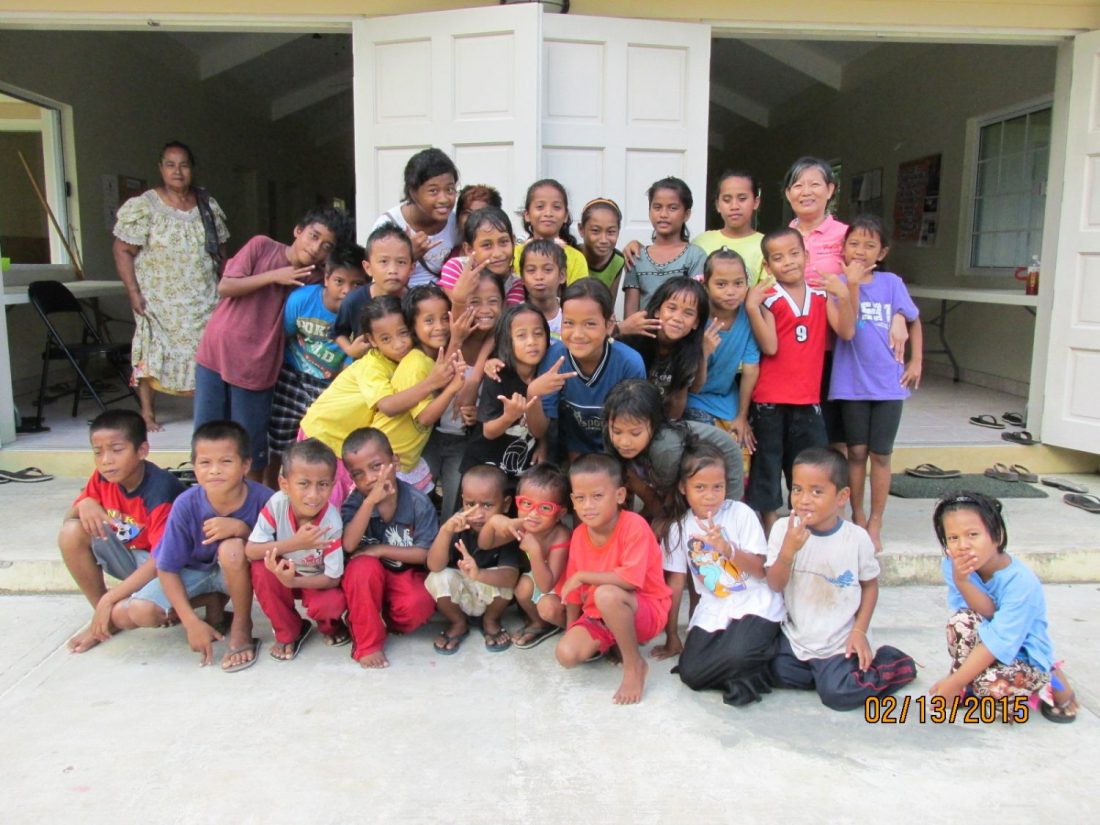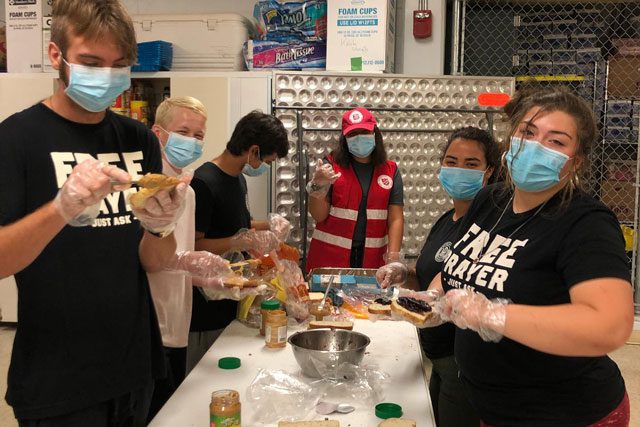Listen to this article
Listen to this article
Loading
Play
Pause
Options
0:00
-:--
1x
Playback Speed- 0.5
- 0.6
- 0.7
- 0.8
- 0.9
- 1
- 1.1
- 1.2
- 1.3
- 1.5
- 2
Audio Language
- English
- French
- German
- Italian
- Spanish
Open text
chuuk corps hosts nutrition workshops. addressing health concerns on micronesia’s most populous state. poor nutrition can hinder a child’s education, and the salvation army in chuuk has started seeing this unfold firsthand. “in the last 18 months that we have served here as corps officers, we [observed] that most of the children who attend our children’s meetings appear thin, pale, weak and slow in learning,” said major jaime macayana, who leads the chuuk corps with his wife, major lilia macayana. “nine to 10-year-old children struggle to write their names let alone read and write simple words even in their own language.”. the salvation army began work in chuuk—one of the four states of the federated states of micronesia—in 1996. macayana said the majority of children he sees here lack proper nutrition. “the reason is that most families are not producing the right and balanced diet needed for children to be healthy and smart,” jaime macayana said. “we observed that in some of our sunday meal fellowship, where members are encouraged to bring their local food. most of the items they bring include canned fish, processed meats and local foods, which are heavy carbohydrates like taro, yam, cooked banana and breadfruit. one of our fishermen…is selling his catch in order to buy sardines for their meal.”. according to world health organization (who), this dependence on processed foods is linked to nutrient deficiencies in the pacific islands, with more than one-fifth of children and pregnant women diagnosed with anemia in 15 of 16 countries surveyed in the region. the result of a low iron level can negatively impact a child’s performance in school with decreased attention span and reduced alertness. the chuuk corps responded to this growing concern by hosting parent nutrition education workshops with lessons on food preparation, cooking and backyard gardening, where parents learn to grow their own food at home. “local food production will result in improved economic stability and healthy living,” macayana said. “malnutrition among children will [likely] be greatly reduced and consequently they will be better able to enjoy and benefit from their education.”. the corps also conducts a literacy class for children who have fallen behind in school. lilia macayana said, “we don’t only teach them reading and writing, but we also teach them good manners and right conduct and faith in god.”.
Open context player
Close context player
Plays:-Audio plays count
chuuk corps hosts nutrition workshops. addressing health concerns on micronesia’s most populous state. poor nutrition can hinder a child’s education, and the salvation army in chuuk has started seeing this unfold firsthand. “in the last 18 months that we have served here as corps officers, we [observed] that most of the children who attend our children’s meetings appear thin, pale, weak and slow in learning,” said major jaime macayana, who leads the chuuk corps with his wife, major lilia macayana. “nine to 10-year-old children struggle to write their names let alone read and write simple words even in their own language.”. the salvation army began work in chuuk—one of the four states of the federated states of micronesia—in 1996. macayana said the majority of children he sees here lack proper nutrition. “the reason is that most families are not producing the right and balanced diet needed for children to be healthy and smart,” jaime macayana said. “we observed that in some of our sunday meal fellowship, where members are encouraged to bring their local food. most of the items they bring include canned fish, processed meats and local foods, which are heavy carbohydrates like taro, yam, cooked banana and breadfruit. one of our fishermen…is selling his catch in order to buy sardines for their meal.”. according to world health organization (who), this dependence on processed foods is linked to nutrient deficiencies in the pacific islands, with more than one-fifth of children and pregnant women diagnosed with anemia in 15 of 16 countries surveyed in the region. the result of a low iron level can negatively impact a child’s performance in school with decreased attention span and reduced alertness. the chuuk corps responded to this growing concern by hosting parent nutrition education workshops with lessons on food preparation, cooking and backyard gardening, where parents learn to grow their own food at home. “local food production will result in improved economic stability and healthy living,” macayana said. “malnutrition among children will [likely] be greatly reduced and consequently they will be better able to enjoy and benefit from their education.”. the corps also conducts a literacy class for children who have fallen behind in school. lilia macayana said, “we don’t only teach them reading and writing, but we also teach them good manners and right conduct and faith in god.”.
Listen to this article















